Pope Francis Fears the Possibility of Nuclear War
The world now stands "at the very limit," said the leader of the Catholic Church. "I am really afraid of this.”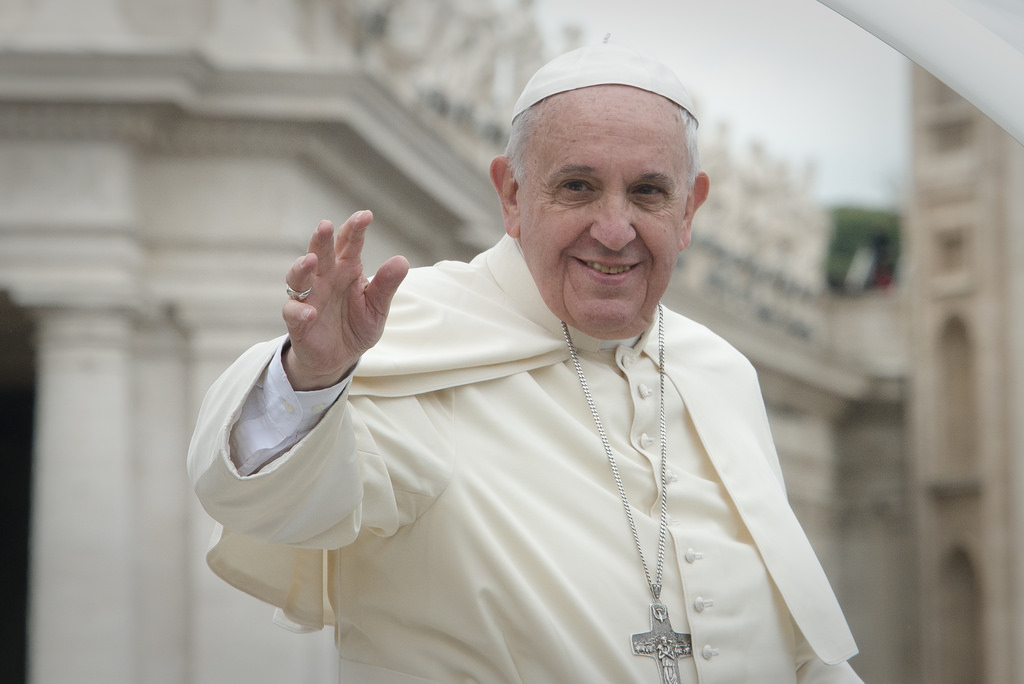 Pope Francis. (Aleteia Image Department / CC BY-SA 2.0)
Pope Francis. (Aleteia Image Department / CC BY-SA 2.0)
Pope Francis does not like what he sees in the world. On Monday, the leader of the Catholic Church said he fears the possibility of nuclear war, Reuters reports.
“I think we are at the very limit,” Pope Francis told reporters aboard the papal plane. “I am really afraid of this. One accident is enough to precipitate things.”
The pope, who is traveling to Chile and Peru, made his comments two days after a mistaken missile alert was issued in Hawaii, provoking panic across the island state. The false alarm fueled national security concerns about North Korea, which has been launching test missiles and bragging about its nuclear capability, while its leader, Kim Jong Un, and President Donald Trump exchange insults on Twitter about their arsenals.
The pope did not name Hawaii, North Korea or Trump. But in November at a Vatican symposium, Pope Francis called for nuclear disarmament, American Magazine reports.
“[Nuclear weapons exist] in the service of a mentality of fear that affects not only the parties in conflict but the entire human race,” he told an audience that included representatives from the United States and Russia. “International relations cannot be held captive to military force, mutual intimidation and the parading of stockpiles of arms.
“Weapons of mass destruction, particularly nuclear weapons, create nothing but a false sense of security. They cannot constitute the basis for peaceful coexistence between members of the human family, which must rather be inspired by an ethics of solidarity.”
American Magazine noted the significance:
[Pope Francis] is the first pope ever to condemn the possession of nuclear weapons since they were initially developed at the end of World War II and then used twice by the United States at Hiroshima and Nagasaki in 1945, causing the deaths of 210,000 people.
Bishop Robert McElroy of San Diego told America, “Pope Francis was clear that because of the significant risks of even an anticipated or accidental war, and of the gargantuan and devastating effects of nuclear war, and of provoking other nations to perhaps use them, the possession itself of these weapons is now condemned, regardless of the intention.
He called the pope’s statement “new and, of course … very significant.” “It is going beyond the questions raised before about the ethic of nuclear deterrence not being warranted in the present day,” Bishop McElroy said. “It’s really going beyond that to the possession itself being morally wrong.”
Last January, days after Trump’s inauguration as president, the Bulletin of the Atomic Scientists moved the Doomsday Clock 30 seconds closer to midnight, or apocalypse. The move from “three minutes to midnight” to “two and a half minutes to midnight”—where the clock stands now—was unprecedented.
The Bulletin explained in a statement:
The board’s decision to move the clock less than a full minute—something it has never before done—reflects a simple reality: As this statement is issued, Donald Trump has been the US president only a matter of days. Many of his cabinet nominations are not yet confirmed by the Senate or installed in government, and he has had little time to take official action.
Just the same, words matter, and President Trump has had plenty to say over the last year. Both his statements and his actions as president-elect have broken with historical precedent in unsettling ways. He has made ill-considered comments about expanding the U.S. nuclear arsenal. He has shown a troubling propensity to discount or outright reject expert advice related to international security, including the conclusions of intelligence experts. And his nominees to head the Energy Department and the Environmental Protection Agency dispute the basics of climate science.
In short, even though he has just now taken office, the president’s intemperate statements, lack of openness to expert advice, and questionable cabinet nominations have already made a bad international security situation worse.
The Doomsday Clock is a trusted measure of the planet’s health and safety. Since the clock was first set in 1947, the Bulletin has reset its minute hand 22 times.
Your support matters…Independent journalism is under threat and overshadowed by heavily funded mainstream media.
You can help level the playing field. Become a member.
Your tax-deductible contribution keeps us digging beneath the headlines to give you thought-provoking, investigative reporting and analysis that unearths what's really happening- without compromise.
Give today to support our courageous, independent journalists.
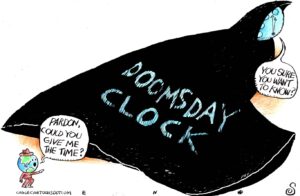
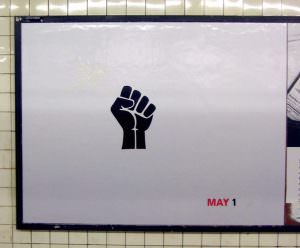
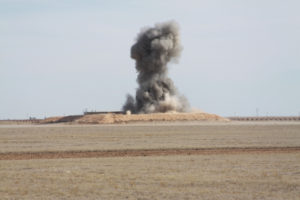
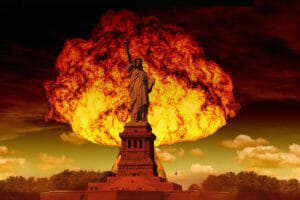

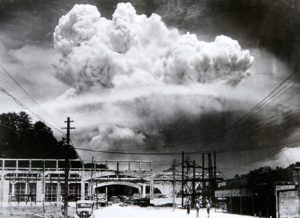
You need to be a supporter to comment.
There are currently no responses to this article.
Be the first to respond.